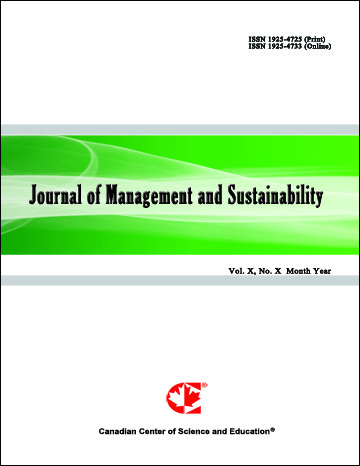Decision Support System for Selecting Sustainable Alternatives to Conventional Jet Fuel: Impact of Emissions, Production Costs and Carbon Pricing
- Suresh Chandran
- Murugan Anandarajan
Abstract
The United States Environmental Protection Agency (EPA) in June 2015, took a step toward regulating carbon emissions from airlines, following an assessment that airlines contribute to climate change. On July 25, 2016, the final endangerment finding (Note 1) under section 231(a) (2) (A) of the Clean Air Act for aviation emissions was issued by the EPA. The European Union had issued a similar finding previously and had proposed implementing an emission trading scheme in which the airlines would be required to participate in a cap and trade scheme for emissions from jet fuel. Traditional jet fuel is derived from petroleum, whose price is volatile and depends on geopolitical stability. Fuel burn is a significant cost for airlines and affects their profitability and value. Fuel burn is also a significant source of greenhouse gas emissions. An investigation of alternatives to jet fuel and switching from conventional jet fuel based on varying emission profiles, production costs and varying carbon prices is therefore timely. We use a simple decision support system to examine the link between the life-cycle greenhouse gas emissions of a range of fuels, economic costs of production and varying carbon prices. This analysis should be of interest to regulators, traders, risk managers and executives in the airline industry as well as practitioners of sustainability management.
- Full Text:
 PDF
PDF
- DOI:10.5539/jms.v10n1p83
Journal Metrics
Google-based Impact Factor (2021): 1.54
h-index (July 2022): 37
i10-index (July 2022): 147
h5-index (2017-2021): 12
h5-median (2017-2021): 19
Index
- Academic Journals Database
- ANVUR (Italian National Agency for the Evaluation of Universities and Research Institutes)
- CAB Abstracts
- CNKI Scholar
- EconBiz
- Excellence in Research for Australia (ERA)
- GETIT@YALE (Yale University Library)
- Harvard Library
- HeinOnline
- Infotrieve
- JournalTOCs
- LOCKSS
- MIAR
- PKP Open Archives Harvester
- RePEc
- Scilit
- SHERPA/RoMEO
- Stanford Libraries
- UCR Library
Contact
- Evelyn XiaoEditorial Assistant
- jms@ccsenet.org
